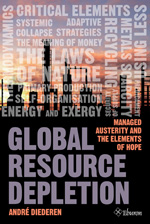This may not seem to be related BUT…When my wife and I went to California on the Zypher I was looking on the net for cheap hotel rooms. I picked a couple of places in Berkley and Oakland because the intent was to a) avoid high San Fransisco prices, and b) to be close to my cousin in south Oakland. I checked a bunch of “review sites” and the reviews were nasty. There were complaints about bed bugs and filth, noise, and crime. You name it. So eventually I went with the La Quinta in Berkley because it was cheap and the car rental place was in the same building. Well when we got there, I decided to check the other places out since they were on the way to my cousins.
They were all FINE. They were in a trendy little area where Cate and I had lunch. The rooms were great and clean. Yes the Metra line went by one of the hotels but you could get a place in back if that really bothered you. So who were all those “reviewers”. Well they were probably the competition, or a marketing company paid to carry out disinformation campaigns.
Well, I have noticed this same trend in commenters on energy issues. So called “people” write comments like – those lying global warming tree huggers or they want our gas prices to go to $5 or even – how could they possibly think that the human population can change the weather on the planet. Just all kinds of garbage with facts that are lies. So I am betting that the commenters to this piece are either directly employed by the energy business. Or they work for one of the multimillion dollar marketing firms the energy companies employ. Though knowing the Koch Brothers, I am sure they hire their own.
http://thehill.com/blogs/e2-wire/677-e2-wire/135031-five-energy-issues-to-watch-next-year
From greenhouse gases to green agenda: 5 energy issues to watch
It’s been a dynamic past 12 months on the energy front. The massive Gulf oil spill dominated much of the news cycle. And while Democratic efforts to pass comprehensive climate change legislation in the Senate failed, the Obama administration is moving ahead with plans to use its existing powers to regulate greenhouse gas emissions.
With the end of the year drawing close — the 111th Congress is over and President Obama is in Hawaii with his family for the holidays — it seems only fitting to turn our attention to next year.
Without further ado, here are five things to watch out for in 2011:
Attempts to block the Environmental Protection Agency’s climate regulations:
On Thursday, just hours before most people in Washington left town for the holidays, the EPA made two major announcements in its efforts to reduce the country’s greenhouse gas emissions. The agency laid out a timetable for phasing in emissions standards for power plants and refineries, and announced it would issue greenhouse gas permits in Texas, where the governor had refused to align with federal rules. On top of that, beginning in January the EPA will, on a case-by-case basis, begin phasing in rules that require large new industrial plants and sites that perform major upgrades to curb emissions.
The move is certain to fuel the fire of opposition against the Obama EPA’s efforts. Republicans, emboldened by their majority in the House and swollen numbers in the Senate come next year, have promised to fight the EPA. While Sen. Jay Rockefeller’s (D-W.Va.) effort to delay the EPA’s authority to regulate greenhouse gas emissions by two years failed, he’s promised to try again next year. Other Republicans have promised to get in on the action.
All eyes are on the new Republican House and energy and enivornment committee chairmen: Rep. Fred Upton (Mich.) will chair the Energy and Commerce Committee, Rep. Doc Hastings (Wash.) will chair the Natural Resources Committee and Rep. Ralph Hall (Texas) will chair the Science and Technology Committee. All three lawmakers are planning to turn a critical eye toward the Obama administration’s climate change policies.
The continuing fallout from the Gulf oil spill:
For the many months that oil gushed into the Gulf of Mexico, the oil spill stayed on the front pages of the country’s newspapers and at the fore of lawmakers’ minds. But almost as soon as the well was capped, lawmakers’ priorities shifted, and talk of passing an oil spill response bill in the Senate died down.
However, the spill is still very much a part of daily life in the Gulf. Spill victims continue to work to receive adequate compensation for the losses they suffered. Next year, Kenneth Feinberg, the administrator of BP’s $20 billion oil spill compensation fund, will continue to determine how best to dole out money to victims.
At the same time, the Department of Justice will advance both its criminal and civil investigations into those companies responsible for the spill. DoJ announced earlier this month that it is suing BP and eight other companies involved in the spill. The department also reserved the right to expand the lawsuit and add new defendants. And DoJ’s criminal investigation continues apace.
On the congressional front, it’s likely that lawmakers will address a few oil-spill related issues
:}
Check out the comments for yourself and finish the article. It is pretty good and much better than the top ten lists we shall see soon. More tomorrow.
:}



